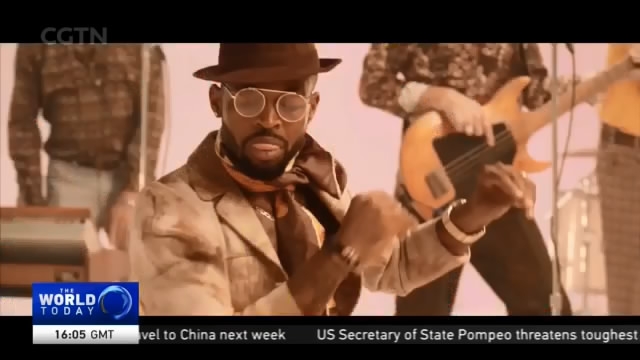
09:02, 22-May-2018
The Magic of Music: How musicians bring the sounds of Jerusalem's streets to life
04:33

Music. It's rhythm and vibration and can be a language between people who otherwise wouldn't understand each other a level playing field with the power to charm even the roughest personality. In our ongoing series on Jerusalem, we meet Palestinian musicians who mix electronic beats with traditional tunes and the Israeli band that pioneered hip-hop in Israel. CGTN's Stephanie Freid has more.
SHAA' NAN STREET,VOCALS HA'DAG NACHASH, TEL AVIV "We feel that there have been enough wars, enough bloodshed and it's time to move on."
Ha'Dag Nachash has been cutting albums for twenty-two years. Jerusalem-based hip hop pioneers, their smash hit about Israel's bumper stickers addresses political frustration and deep divides between Jews and Arabs, religious versus secular, violence, settlers, soldiers, suicide bombers and lacking peace.
YAIR COHEN HAROUNOFF, BASS HA' DAG NACHASH TEL AVIV "It's not exactly a mission but we speak our truth with no fear. We can say what we want."
MOHAMMED MOGHRABI, JABID SHUAFAT REFUGEE CAMP, JERUSALEM "For me, I live the politics. It's everywhere. I walk in the streets, I see it. I see the refugee camp. I see, I am the struggle. I am the Palestinian struggle."
Arabic for "the bomb", JABID is an electronic, hip-hop collaborative. Two artists are from Ramallah, one is from Hebron and the writer, producer, editor and founding recording artist is from Jerusalem's Shuafat refugee camp.
MOHAMMED MOGHRABI, JABID SHUAFAT REFUGEE CAMP, JERUSALEM "Why am I not allowed to have dreams? "You're from the refugee camp. You just need to keep your head down and live like everybody else and have no dreams. There's limits on you everywhere."
JABID refuses to accept limitations. Including criticism over their lyrics that talk about attraction & flirting - frowned on in conservative Moslem societies. Their current hit, a love song encouraging "Hey Girl, Get your Dance On" topped YouTube views in its category this Spring in Israel, Lebanon, Palestine and Jordan. But local stations won't play it.
MOHAMMED MOGHRABI, JABID SHUAFAT REFUGEE CAMP, JERUSALEM "They don't want to play us on the radio or T.V.? We have the Internet. And we have the millions of views that no one gets. We are the real superstars."
SHAA’NAN STREET, VOCALS HA’DAG NACHASH, TEL AVIV "We get our share of hate. On the Internet mostly. But everybody who has any position gets his share of hate, you know? The only ones who don't get any hate are the ones who say nothing."
GUY MAR, GUITAR/VOCALS HA’DAG NACHASH, TEL AVIV "At least there's six of us to share it."
Crafted, clever lyrics offer sharp, critical observations. But their message is positive .
SHAA'NAN STREET, VOCALS HA'DAG NACHASH, TEL AVIV "It's up to us to keep our optimism and it's up to us to work for change and happiness is the right way to go about it. Creative happy energy gets better results."
Ditto with JABID artists who record songs about freedom, love, and flirting while turning up studio speakers to block out gunfire sounds from the street below.
MOHAMMED MOGHRABI, JABID SHUAFAT REFUGEE CAMP, JERUSALEM "Just don't remind me. My existence is full of politics. I don't want to remind myself because I know. I just wanna try to make it better, at least try."
Mobility and access are distinct differences between the two. Most Ha' Dag Nachash members moved to Tel Aviv to be closer to practice & recording studios Booked for a Spring performance in northern Israel, JABID members don't know if they'll get the Israeli permits they need to cross military checkpoints.
MOHAMMED MOGHRABI, JABID SHUAFAT REFUGEE CAMP, JERUSALEM "People are calling us and telling us: 'So you're going to actually be there or not?' We don't know what to say."
For both groups the music is the message for one, it's also a ticket out.
Stephanie Freid, CGTN, Jerusalem.

SITEMAP
Copyright © 2018 CGTN. Beijing ICP prepared NO.16065310-3
Copyright © 2018 CGTN. Beijing ICP prepared NO.16065310-3